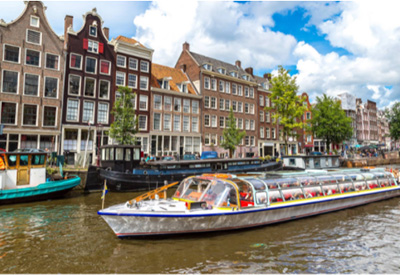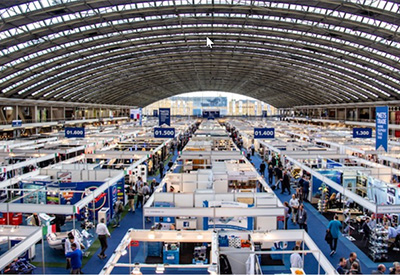Report from the annual METS Trade Marine Equipment Show

Nov 30, 2021
 The Future of Boating is Sustainable
The Future of Boating is Sustainable
Covering the square footage of 26 football fields, nearly 1,300 exhibitors in four huge halls displayed new products that will be used by boat builders around the world in future vessels.
by Jeff Hammond of BoatTEST.com
BoatTEST sent a crew to Amsterdam to visit the annual METS Trade Marine Equipment Show. After a Covid-pause of one year, the 2021 METS Trade show was bursting with two years’ worth of new products. The importance of METS is that the exhibitors’ new products point to the future direction of boating and this year’s show unmistakably pointed to a “sustainable” future. That means electric outboard motors, hybrid diesel and electric inboard drive systems, a move to high energy-density Lithium-ion batteries and a move away from oil-based products wherever possible.
While it is hard for many Americans to grasp, Europe is leading the way to the future, and boating is just one small manifestation of what is going on. Despite the many nationalities, cultures, economic systems and languages, Europeans are taking global warming seriously. Local governments are often taking the lead, passing legislation to reduce, restrict, and eliminate emissions from ICE (internal combustion engines), and curtail the use of oil-based products wherever possible. European manufacturers of ICE engines such as Volvo Penta have announced plans to be all electric within the next ten years, and Volvo cars will be all electric by 2030.
Already 75% of Amsterdam’s 550 commercial vessels are electric-powered, but less than 5% of its 12,000 recreational boats are emissions-free. All must be compliant by 2025 or move elsewhere.
Creating a necessity for sustainable power, governments such as the one in Amsterdam have passed laws requiring electric power on all boats using its canals, as well as a ban on ICE engines operating in its canals and harbors by 2025. Other cities, states and governing bodies around Europe are doing the same, all on their own timetable. Indeed, several lakes in Germany have required extremely low emissions, or no emissions from boats for over a decade. (READ MORE HERE)



























